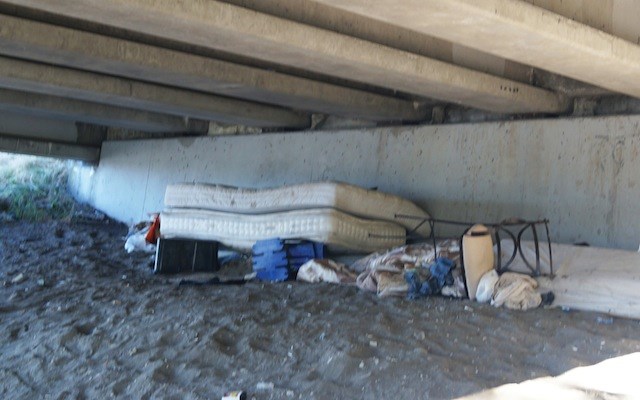The City of Richmond has decided to contribute $50,000 to help form a centralized housing database and fund a homelessness liaison to work with a yet-to-be-contracted non-profit organization that will manage outreach efforts in the community.
De Whalen, chair of the Richmond Poverty Response Committee, said the new money is a “really good start,” however she reminded city councillors at a meeting Monday that a housing provider, least to mention housing, has yet to be found.
Meanwhile, councillors continued to question the provincial government’s role, or lack thereof, in curtailing the growing number of homeless people in Richmond.
“Where is the province on this? You can’t keep burying your head in the sand,” said Coun. Bill McNulty.
Mayor Malcolm Brodie, long a believer that the city should play a limited role in assisting social service agencies that fall under the provincial government’s housing mandate, responded to McNulty, saying a different “attitude” was needed.
Instead of chiding the government, now, in the wake of a budget surplus, is the time to ask for funding, said Brodie.
In a report to council, Richmond’s Affordable Housing Coordinator Joyce Rautenberg, outlined the various problems that exist today.
For one, Richmond has no shelter beds for women and children, something Coun. Chak Au called a “shame.”
Meanwhile, the city’s only homeless shelter for men, run by the Salvation Army, needs a new home, as its leased property was sold for redevelopment.
The city’s only drop-in centre at St.Alban Anglican Church shut down in August, leaving no central hub for homeless and at-risk individuals to access resources and support networks.
Furthermore, those networks are increasingly having to deal with housing problems.
For instance, Chimo, a crisis services organization, will be running the extreme-weather shelter this winter, after church staff and volunteers became overburdened.
Turning Point Recovery Society is presumably opening a new drop-in centre with a new $100,000 per-year grant, over the next three years, from the provincial government. However, there appears to be no set time for reopening.
Chimo is currently turning away approximately 30 women every month seeking shelter, noted the report. The men’s shelter turns away about 60 people monthly, as well.
Rautenberg noted Richmond’s vacancy rate has been under one per cent over the past year.
Whalen called on council to build more rental developments by providing incentives to developers.
Last year, no such housing was created in Richmond.
There appeared to be no indication from Rautenberg that the city would be providing land to establish a new shelter, be it for men or women, or both.
The city has responded to requests from St. Alban’s parishioners in allowing Brighouse Park to be the new site of a Friday afternoon meal program.
The new funding, a one-year pilot program at the moment, should assist agencies in collaborating with one another on housing matters, noted Rautenberg.
“This could alleviate the pressure that local service providers are facing with an increased case management load due to the volume of clients in crisis and with complex needs,” she wrote.
Outreach workers have 120 open files on homeless people in the city’s streets.



